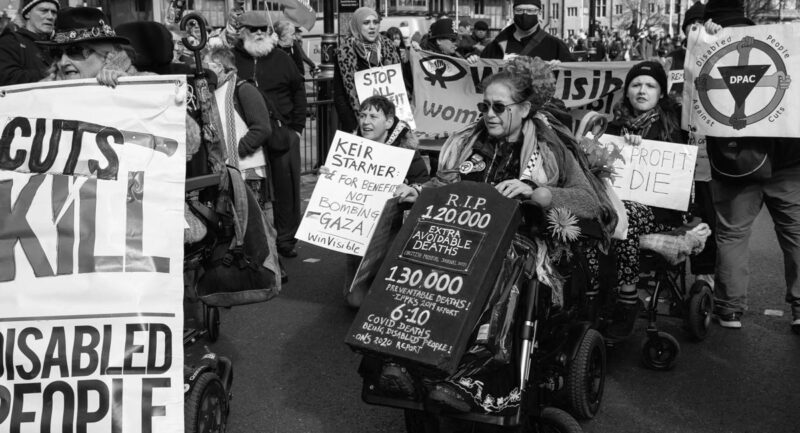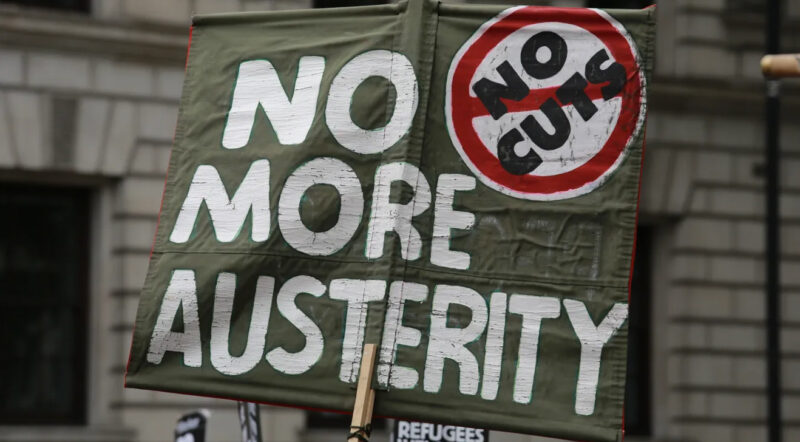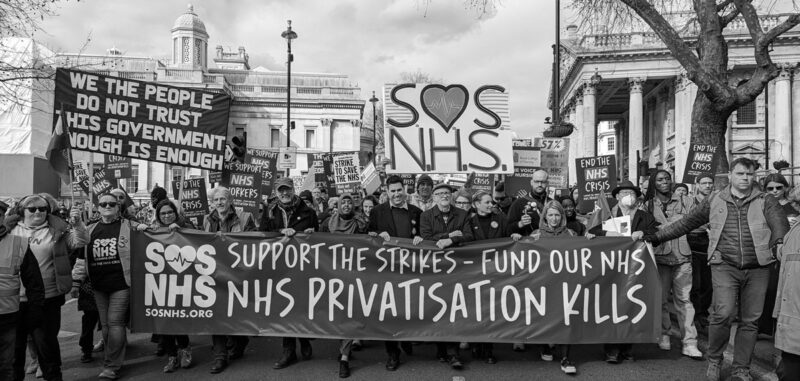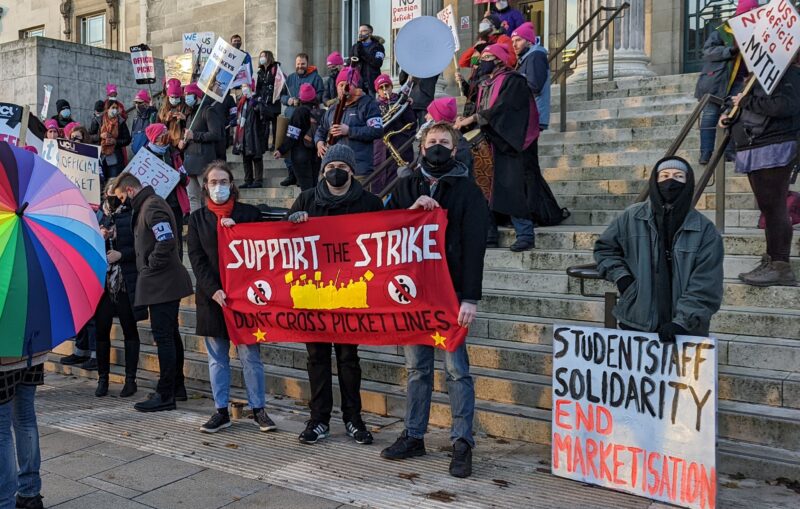To kick out the market, first kick the cops off campus!
By KD Tait
University bosses have launched a crackdown against a wave of student occupations. The suppression of the right to protest signals the start of the final offensive in the struggle to complete the marketization of Higher Education.
Injunctions have been used to ban all protests at several universities. Where students rejected the rulings of the judges, the police wielded batons and boot to enforce them. In London students were punched, bloodied and dragged by their hair. University of London Union president Michael Chessum described their assault as “one of the nastiest and most brutal I have seen on campus in a long time.”
At Sussex, five students have been suspended for taking part in protests against privatisation and job cuts. The occupation of management offices at Senate House in London was evicted by dozens of riot cops. So far 41 students have been arrested. Police have imposed bail conditions which prevent students from gathering in groups of more than four, or being present on campus except for lectures.
The motivation for this unprecedented attack is clear: the rebirth of a student resistance to the privatisation of Higher Education threatens to disrupt the establishment of a market for knowledge.
The intervention of the courts and police in the repression of protest shows the Vice-chancellors have the full support of the state to take any measures necessary to drive through their ‘reforms’.
The university bosses are the (obscenely well paid) agents of capital inside the Higher Education sector – fulfilling exactly the same role as the heads of academies and free schools.
A dangerous unity
Students today count themselves fortunate to avoid the fate of many of their contemporaries – unemployment, workfare or minimum wage jobs on zero-hour contracts.
At the same time they resent the burden of a debt which ends up lining the pockets of an elite university management, while having to work insecure part-time jobs and watching as the prospect of secure graduate employment diminishes.
In these conditions it is easy for many students to identify with the low-paid, precarious, outsourced workers who clean the halls of residence and senior management offices.
The success of the Tres Cosas campaign is symbolic of the fight to turn the slogan “students and workers unite and fight” into a practical reality. Solidarity, the watchword of 2010 has been transformed into the weapon of 2013.
This shift in consciousness amongst small, but militant layers of students – the same students who fought the police as school and college youth in 2010 – is both our greatest strength and a nightmare for university bosses.
Cops off campus
The mass resistance in 2010 ensured the government lost the argument even if it won the battle. This means that university bosses have to rely on the police to act as the shock troops of marketisation.
The police have come onto campus not as a force to protect those who work and study there, but as the mailed fist of the bosses who stand to profit from the privatisation of education.
The fight to get cops off campus is more than an expression of hostility towards a police force which colludes with university management to harass, beat and arrest students with impunity. It is the necessary precondition for mobilising opposition to the privatisation of our education.
If we cannot first create secure spaces for democratic organisation in our universities we will have no chance of drawing the mass of students into activity.
But the repression unleashed by the university authorities could well spark the rebirth of a new, more political and powerful student movement. Fearing this, the government, the bosses and the repressive apparatus of the state are conspiring to strangle our movement in its cradle.
But a rapid, massive and sustained escalation can defeat these attacks on our right to protest.
We appeal to all students to join the national day of action on Wednesday 11 December, as the first step towards relaunching the struggle to defend education.
- Defend the right to protest: drop the charges, lift the suspensions, scrap all bans on the right to protest; no victimisation for students and staff involved. All police officers guilty of attacking students must face justice.
- Defend education: join the week of action in February against the privatisation of student loans.
- Students and workers unite: solidarity with Higher Education unions fighting for a fair pay rise and the living wage. Support the Tres Cosas campaign and strike in January.
- Build a fighting student movement: NCAFC and SAAA should convene a national convention in defence of education, uniting all the local committees and networks to found a national coordination of our resistance in the new year







